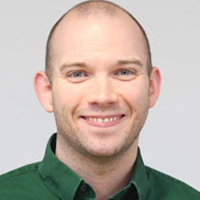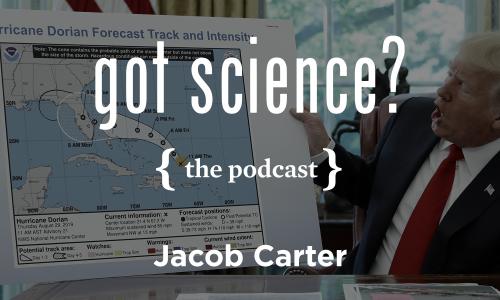
Jacob Carter is a research director for the Center for Science and Democracy at the Union of Concerned Scientists. In this role, Dr. Carter investigates how science is used in the policy-making process, focusing on issues of scientific integrity across the federal government.
Prior to joining UCS, Dr. Carter worked at the Environmental Protection Agency as an Oak Ridge Institute for Science and Education (ORISE) Postdoctoral Fellow. At the EPA, Dr. Carter integrated the effects of climate change into estimates of future coastal inundation on contaminated lands, such as brownfields and superfund sites, to help guide decisions on adaptation efforts that could better protect nearby communities from the spread of dangerous contaminants during future floods. He also helped model greenhouse gas emissions for the siting of renewable energy installations on green space versus contaminated lands as part of his work with EPA’s RE-Powering America’s Land Initiative. Prior to his postdoctoral position, Dr. Carter was at the White House Office of Science and Technology Policy, where he helped establish an interagency task force on improving the health of honey bees and other pollinators, planned the planting of the first pollinator garden on the south lawn of the White House, and also worked on President Obama’s Climate Action Plan.
Dr. Carter has a B.S. in biology from the University of Central Arkansas, and an M.S. in biology from Kansas State University. He earned a PhD in ecology and evolutionary biology and a graduate-level certificate in environmental studies from the University of Kansas.
Selected publications
Goldman, G., G. Reed., and J. Carter. 2018. Risks to Science-Based Policy Under the Trump Administration. Stetson Law Review. 47 (2) 267-293. Online at http://www.stetson.edu/law/lawreview/media/VOL47-9.Goldman%20et%20al.pdf
Goldman G, Reed G, Carter JM (2018) Risks to science-based policy under the Trump administration, Stetson Law Review 47(2) pp 267-293
Carter JM, Orive ME, Gerhart LM, Stern JH, Marchin RM, Nagel J, Ward JK (2017) Warmest extreme year in U.S. history alters thermal requirements for tree phenology, Oecologia 183(4) pp 1197-1210
Carter JM, Steiger R (2014) Crime scene inquiry activity: using a modern research technique to teach about photosynthesis and isotopes, Journal of Laboratory Chemical Education 2(2): pp 18-24
Carter JM, Nippert JB (2012) Leaf-level physiological responses of Tamarix ramosissima to increasing salinity, Journal of Arid Environments 77: pp 17-24

